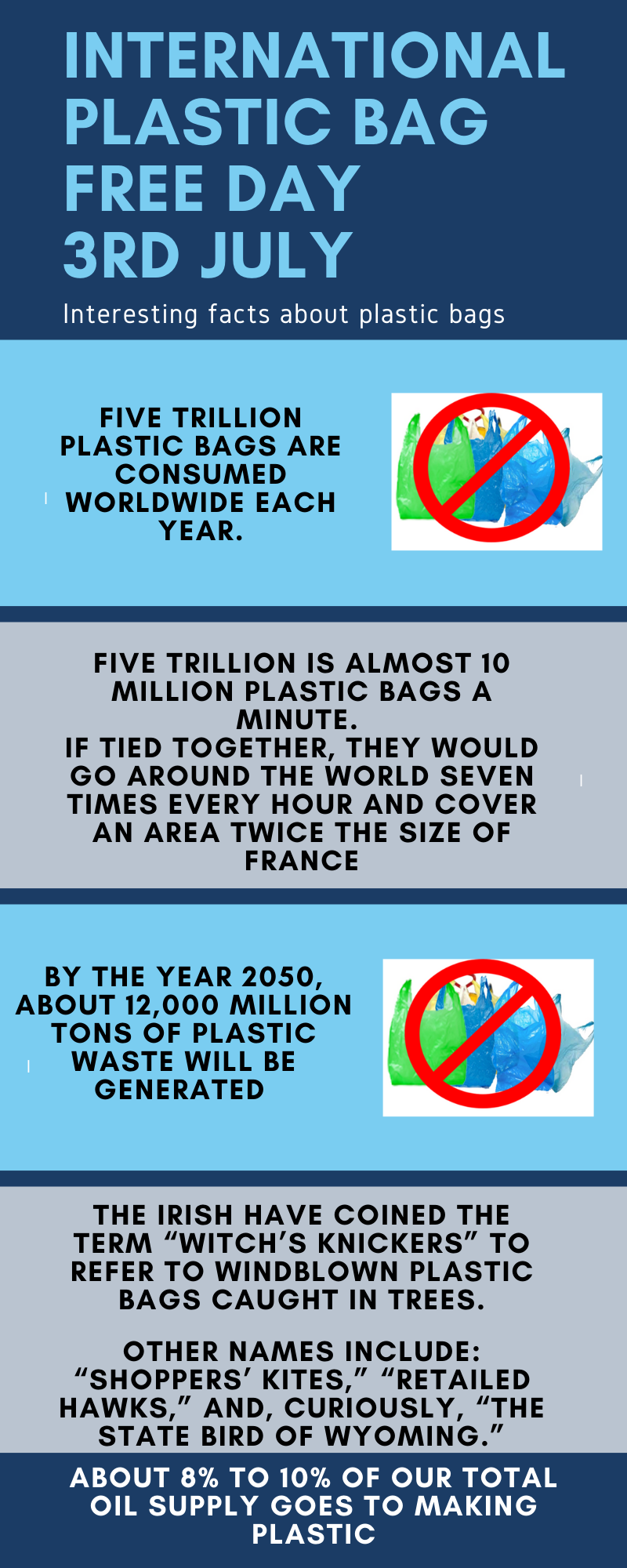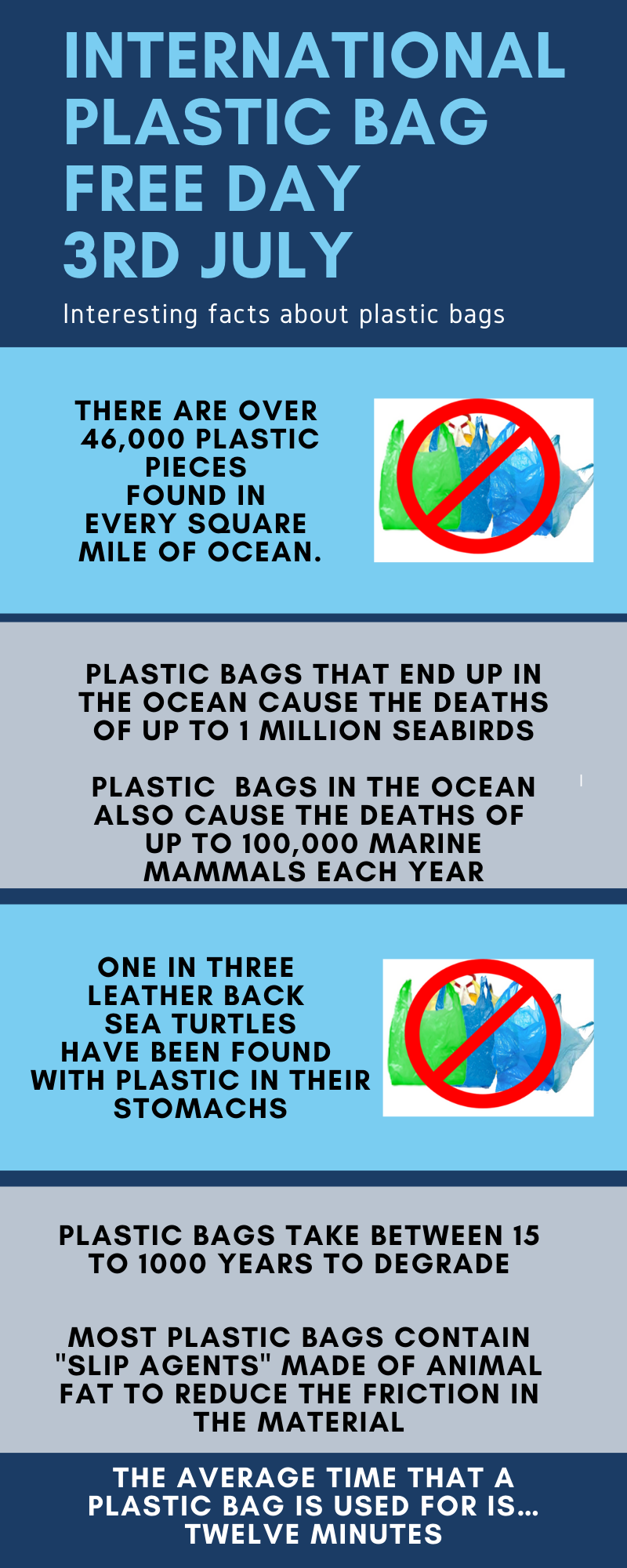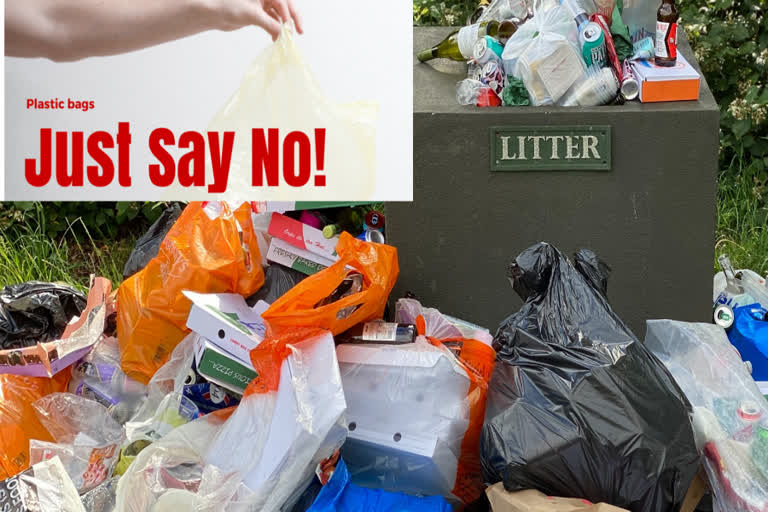Hyderabad: International Plastic bag free day is celebrated on 3rd July to get rid of single-use plastics. It is time to say no to plastics. These cause a lot of health issues like respiratory problems etc.
Some facts about plastic bags:-
- In South Africa, there are so many plastic bags littering the environment that many joke that plastic bags are “the new national flower”
- In the North Pacific Ocean, there are 6x more plastic debris than plankton. The Great Pacific Garbage Patch is a gyre of plastic debris in the north-central Pacific Ocean. It’s the largest accumulation of plastic in the world.
- A company in Indonesia has created a plastic bag so eco-friendly you can eat it. It’s made out of cassava, the vegetable root which is a staple in the diets of many in Africa, Latin America and Asia,


Plastic bags around the world:
- A report from UN Environment and WRI found that at least 127 countries (of 192 reviewed) have adopted some form of legislation to regulate plastic bags as of July 2018.
- Twenty-five of the 91 countries that have plastic bag bans include exemptions, and many have multiple exemptions.
- Only 16 countries had rules regarding the use of reusable bags or plastic alternatives, such as bags made from plant-based materials.
- France, India, Italy, Madagascar, and several other countries don't have an outright ban on all plastic bags, but they do ban or tax plastic bags that are fewer than 50 microns in thickness.
- China bans plastic bag imports and mandates that retailers charge consumers for plastic shopping bags, but does not explicitly restrict their production or exportation.
- Ecuador, El Salvador and Guyana only regulate the disposal of plastic bags, but not their importation, production, and retail use.
- Cape Verde, imposed a percentage reduction on plastic bag production, starting at 60 percent in 2015 and growing to 100 percent in 2016, when its full ban on plastic bags came into force. Since then, only biodegradable and compostable plastic bags are allowed in the country.
- Australia and India enacted laws that require Extended Producer Responsibility (EPR), a policy approach where producers must be responsible for the clean-up or recycling of their products. EPR encompasses the management of the potential impacts of a product in all stages of production, distribution, use, collection, re-use, recycling, reprocessing, and disposal.
- In an effort to reduce plastic pollution, many governments have outlawed conventional plastic bags, allowing only the use and production of “biodegradable” bags.
Let's try to limit plastic waste during the COVID-19 pandemic. Simply carrying groceries straight from the basket or cart to your car if that’s possible. Paper bags are another alternative; they are still single-use, but at least they’re compostable. In the long run, protecting public health and the planet usually go hand in hand.
Also Read: "Let us take a pledge to reduce the use of plastic bags", MoEF&CC



